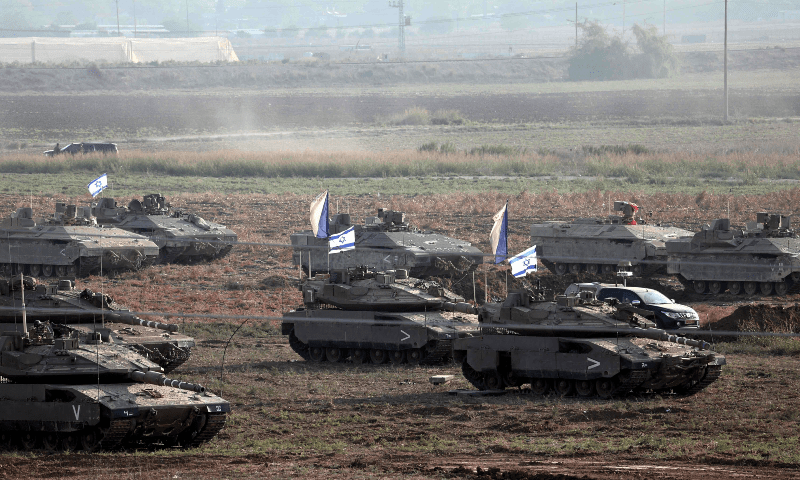
[ad_1]

Regional tensions escalate amid the Gaza conflict, raising fears of a wider regional war.
The ongoing Israeli onslaught in Gaza has escalated regional tensions, with Arab countries — such as Lebanon, Yemen, and Syria — as well as Iran, involved, raising concerns over a potential wider regional conflict.
Israel
Israeli forces had unilaterally withdrew from Gaza in 2005 marking 38 years after capturing it from Egypt in the Middle East war, abandoning settlements and leaving the enclave under the control of the Palestinian Authority.
In 2022, at least 44 people, including 15 children, were killed in three days of violence that began when Israeli air strikes hit a senior Hamas commander in a pre-emptive operation against an imminent attack by the allegedly Iranian-backed movement.
Israel launched its military offensive in Gaza against Hamas’s Oct 7, 2023 attacks which has killed 41,638 Palestinians, according to the Palestinian health ministry.
Palestinian Territories
Tensions between Israel and Palestine date back to the late 1940s. Palestinians lament Israel’s creation as the Nakba, or catastrophe, that resulted in their dispossession and blocked their dreams of statehood.
In the conflict that followed, some 700,000 Palestinians, half the Arab population of what was British-ruled Palestine, fled or were driven from their homes, ending up in Jordan, Lebanon, and Syria as well as in Gaza, the West Bank, and East Jerusalem.
In 2006, Hamas won a majority of seats in a Palestinian legislative election. Later in 2007, Hamas took over Gaza in a brief civil war, ousting Fatah forces loyal to Palestinian President Mahmoud Abbas, who is based in the West Bank.
Lebanon
Israel invaded Lebanon in 1982 and thousands of Palestinian fighters under Yasser Arafat were evacuated by sea after a 10-week siege. In 2006, war erupted when Lebanon’s Hezbollah fighters captured two Israeli soldiers and Israel retaliated.
Hezbollah and Israel have been exchanging cross-border fire since Oct last year.
Hezbollah leader Sayyed Hassan Nasrallah was killed in Israeli attacks on September 28, 2024, which was confirmed by Hezbollah who vowed to continue the battle against Israel.
Meanwhile, Lebanon’s health ministry has recorded more than 1,000 killed and 6,000 wounded in the past two weeks in Israeli strikes.
Syria
Israel has been carrying out strikes against allegedly Iran-linked targets in Syria for years but has ramped up raids since Oct 7, 2023.
Three civilians were killed and nine others injured on October 1, 2024, in an Israeli airstrike on the capital Damascus, according to Syrian state media.
The Syrian leadership has historically provided support for Hamas, including allowing the organization to move its politburo to Damascus.
Later, Syria switched its position of supporting Hamas, suggesting that it would recognise a Palestinian state based on the 1967 borders.
Various groups, allegedly supported by Iran, operate inside the country and act independently of the Syrian government.
Yemen
Yemen’s Houthis are part of the “Axis of Resistance” — an anti-Israel and anti-Western alliance of regional groups (Hamas, Hezbollah, and Houthis), allegedly backed by Iran.
The Houthis have said their attacks on shipping routes in the Red Sea are a show of support for the Palestinians and Hamas in its fighting with Israel.
Iran
Iran’s relations with Israel have been severed since Ayatollah Khomeini came to power. Tehran cut off all ties with Israel; citizens could no longer travel and flight routes were cancelled; and the Israeli embassy in Tehran was transformed into the Palestinian embassy.
Iran allegedly supports an “Axis of Resistance” which includes a network of political and armed groups across the region, including in Lebanon, Syria, Iraq, and Yemen, supporting the Palestinian cause and against Israel and US influence in the Middle East.
Iran struck back against Israel on October 1, 2024, launching a barrage of missiles after Tel Aviv claimed it had carried out ground incursions into south Lebanon.
[ad_2]
Source link






